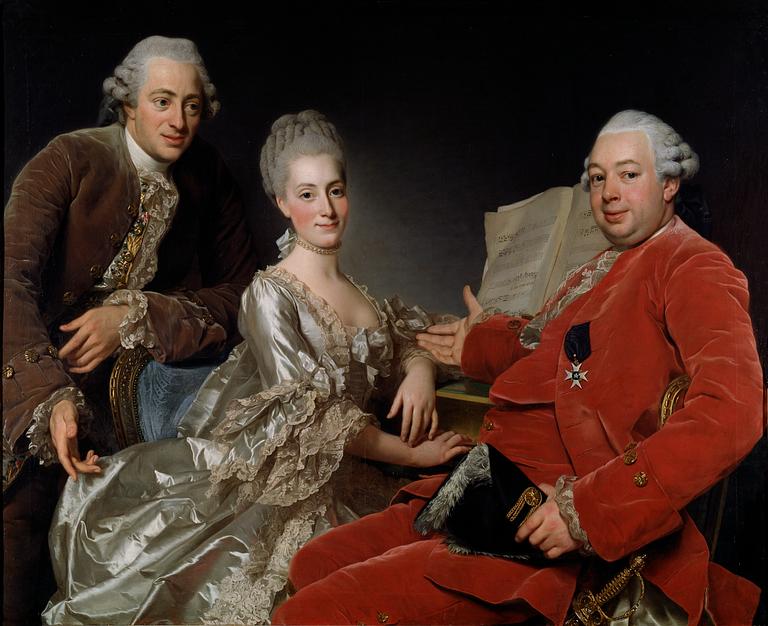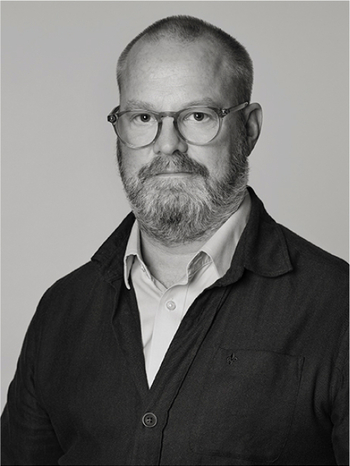Alexander Roslin
"Lord Chamberlain John Jennings" (1729-1773)
Relined canvas 73.5 x 59 cm. Old gilded frame.
Täydennyslista
Purchased by Carl Robert Lamm on August 16, 1912, from Major's wife Lilly Jennings, Skånelaholm, Uppland, for 6000 SEK.
Alkuperä - Provenienssi
The Jennings family, Skånelaholm, Uppland.
Purchased on August 16, 1912, by Carl Robert Lamm from Major's wife Lilly Jennings (née von Heijne-Lillienberg) (1844-1926), Skånelaholm, Uppland for 6000 SEK.
Formerly in the collections of Carl Robert Lamm, Näsby Castle, Uppland (cat. no. 2299)
Bukowskis Auction House AB, auction 242, "The Collections of Carl Robert Lamm", September 27, 1923, cat. no. 181, illustrated on plate 27.
Previously in the collections of Ph.D. Erik Kempe, Örnsköldsvik.
Bukowskis Auction House AB, auction 554, Autumn Classic Auction, November 24, 2009, cat. no. 257.
Kirjallisuus
Sjöberg, "Swedish Castles and Manor Houses, Uppland 1909-14, ”Skånelaholm”, depicted on page 164.
Gunnar W Lundberg, "Roslin - life and work" 1957, part I, depicted full page on page 109. Part II, cat. no. 282.
Lundberg in Thieme-Becker, "Künstlerlexikon" XXIX (1935), text image I:109.
Nationalmuseum exhibition catalog no. 652, "Alexander Roslin", Stockholm, 2007, compare cat. no. 105 "Industrialist John Jennings with brother Frans Jennings and sister-in-law Jeanne Elise Trembley", signed Roslin à Paris 1769, NM1566.
Muut tiedot
Alexander Roslin was born on July 15 1718 in Malmö. These were bad times in Sweden - Alexander's father, medical doctor Hans Roslin, complained the same year his son was born that in "these penniless times living is much too hard". A career choice that required an expensive education was unthinkable for the young Alexander. Instead, he was driven from childhood by a desire to free his father from the burden of supporting the family. His original idea was to train as a shipbuilder, and he was apprenticed to the admiralty draftsman Lars Ehrenbill. Ehrenbill soon realized his young protégé's artistic talent and advised him to continue his education in Stockholm. In 1736 Alexander Roslin left southern Sweden for the capital to begin his apprenticeship with the portrait painter Georg Engelhard Schröder, who enjoyed the position of Frederick I's court painter. Ten years later, in the mid-1740s, Roslin himself had been awarded this title, at the small court of Margrave Frederick of Brandenburg - Culmbach. In fierce competition, he also became director and professor at the newly founded Academy of Arts. Still, the dream of an educational trip to Italy and France remained with Roslin, who left the Brandenburg court in 1747 to travel south. In Florence, the following year, he was elected to the Imperial Academy of Arts just in time for his 30th birthday and after a long time traveling around Italy, he finally reached his goal in 1752 - Paris. Thanks to letters of introduction from the Duchess of Parma, whom he got to know in Italy, Roslin was brought straight into the court circles of the French capital. Although he himself never got to portray the leading lady of society and the king's mistress, Madame de Pompadour, proof of the court painter Boucher's appreciation of the Swede can be found in the fact that Roslin assisted Boucher with the fabric painting when he was asked to paint Pompadour. In 1753, Roslin was elected to the French Academy of Arts and was represented at the Paris Salon in the same year by no less than five portraits. Thus began a brilliant career in the city Roslin had always dreamed of, and rarely has a foreign artist succeeded so quickly and won the hearts of the art-loving Parisians. Alexander Roslin died in his home at the Louvre in the summer of 1793. The meeting of the Academy on July 6 of that year opened with the secretary's announcement of the Swede's passing: "décedé aux Galleries du Louvre dans la 75e année de son âge".
John (Johan) Jennings was the son of Frans Jennings, born in Ireland, and Maria Kristina Bedoire. John Jennings was brought up in England but moved to Sweden and served with the Life Regiment in the middle of the 18th century where he became master of horse.
Like his father, after completing his service in the military, he began conducting business on a large scale. Through loans from the National Bank and his father-in-law Thomas Plomgren (he was married to Hedvid Sofia Plomgren), he was able to buy and build a number of iron mills such as Robertsfors' and Forsmark's mills. He had good knowledge in the field and business flourished and he was elected to the Iron Office and the Academy of Sciences.
He was also politically active within the "Hats" where he was treasurer. Wealthy as he was, he contributed a lot of money to support the party and at the 1769 Riksdag he took a very active part in reintroducing the "Hats" to power.
In 1769 mill patron John Jennings met up with his brother Frans Jennings and sister-in-law Jeanne Élise Trembley in Paris. There they commissioned a group portrait by Roslin, one of the most sought-after portrait painters of the time. Roslin's skill in producing fabrics, lace and powdered faces with great illusory effect had made him one of Sweden's most internationally successful artists of all time. The portrait currently on auction of John Jennings in a red velvet suit, freshly powdered wig, and the Order of the North Star clearly visible on the coat must have been made at the same time. The painting 'John Jennings with his brother and sister-in-law' has been part of the National Museum's collections in Stockholm since 1901.
John Jennings received the title of court marshal in 1770 and lived his last years at Forsmark's mill, Uppland where he passed away in 1773.
Caption: "John Jennings with brother and sister-in-law", Paris 1769, NM1566.













































